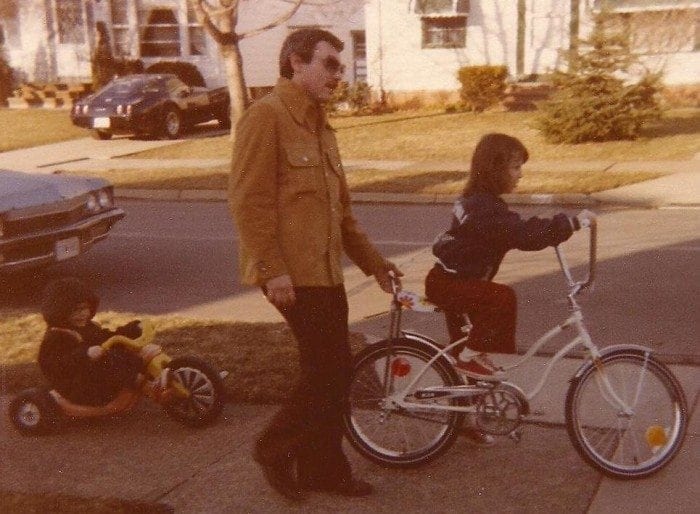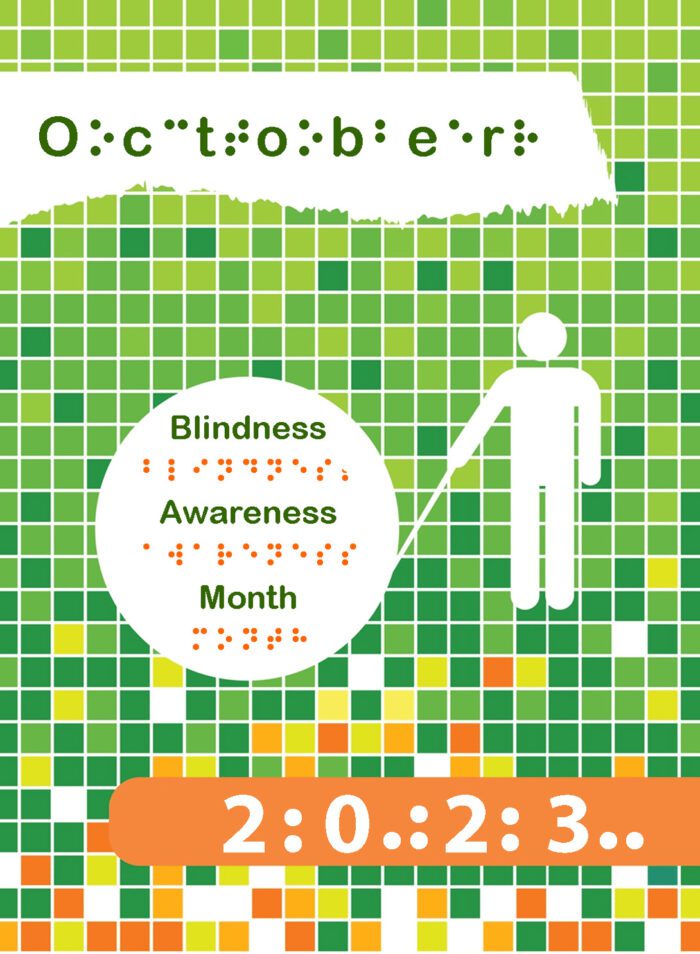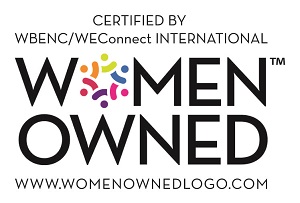Blindness Awareness Month – What’s it Like Having Parents Who Are Blind?
Published onIn observance of October being Blindness Awareness Month and today being World Sight Day, I’ve written an article on the age-old question, “what is it like having parents who are blind?”
What Is It Like Having Parents Who Are Blind?
This is one of the most frequent questions people would (and still do) ask me. Both of my parents have been blind since the day I was born, over 50-years ago. I have never really had an answer to this question. I have no other way of knowing what sighted parents are like. So, I would respond, “What is it like having sighted parents? Maybe we can compare parents, swap notes.” This response was always met with a shoulder shrug or a puzzled look. Their response summed up my thoughts.
Recently, I have given the question, ‘What is it like to have parents who are blind?’ a lot of thought. In short, I think I can share some observable differences.

First of all, I learned to read at a young age, mainly out of necessity. My parents would have me spell words to them. I would spell all sorts of things like: G-r-o-c-e-r-y, b-a-n-k, K-M-a-r-t, p-i-z-z-a and the like.
Then, one day I saw a new sign on the local deli’s door in bright red letters. This was our favorite deli, so an important red sign sparked an internal alarm. What came next was the start of my learning to read, “E-X-I—- OUCH!” My dad tried to yell in time to get me to move away from the front of the new automatic door, but I was so focused on reading the very important letters that the door automatically swung open in my face. I think some regulation must have been put in place since the early models of the automatic door because that door hit me with a force I have not forgotten. From then on I kept a safe distance from doors and began attempting to sound out words.
My parents and I walked most places we needed to go. We lived in a city in Northeast Ohio that made mobility pretty easy. Once I tackled the reading of signs it was time to expand our mobility. My dad taught me that the lake was always north; sometimes we’d spend hours looking for the lake. My mom taught me to Never Eat Sour Watermelon, and my grandma taught me the positioning of the sun in relationship to the time of day; if I could have only remembered to wear my watch more often it would have made life much easier. All in all, I learned to, “Stay Calm and look for the Lake” and to “Never Eat Sour Watermelon” (North – East – South – West).

I learned about household finances before most kids my age. Once I tackled the reading issues, I was able to read the mail to my parents. I’d log the bills, write out checks and balance the checkbook. I am certain there were some things my parents didn’t want me to know, but until more businesses followed the federal laws of providing documents in an accessible format, privacy for people who were blind was not possible.
For the most part, my siblings and I found our parents to be more aware of what we were doing than our friends’ parents. We spent more time talking to our parents since they couldn’t just visually peek in on us. There were many times we thought our parents were faking being blind. They were very much aware of what we were all doing, more often than not.
My parents loved me, cared for me, taught me things, took me places and did what every other parent did for their kids. The only difference was the method of raising me. I guess this answers the age-old question of, “What is it like having parents who are blind.”
Now, if I could only find an appropriate response for the question, “How did your parents drive if they were blind?”
About the Author
Christine Sket writes advocacy, educational, marketing and statute blogs/news for Braille Works. She understands the importance of, ‘Making the World a More Readable Place™’, for people who are blind or have low vision. She grew up in Northeast Ohio, but she calls the gulf coast of Florida her home now. Christine feels strongly about educating the public about the needs that people with blindness or low vision face and advocating solutions for people with visual impairments.
Resources
Categorized in: Health and Wellness, Informational, News and Events, Opinion
This post was written by



Comments are closed here.